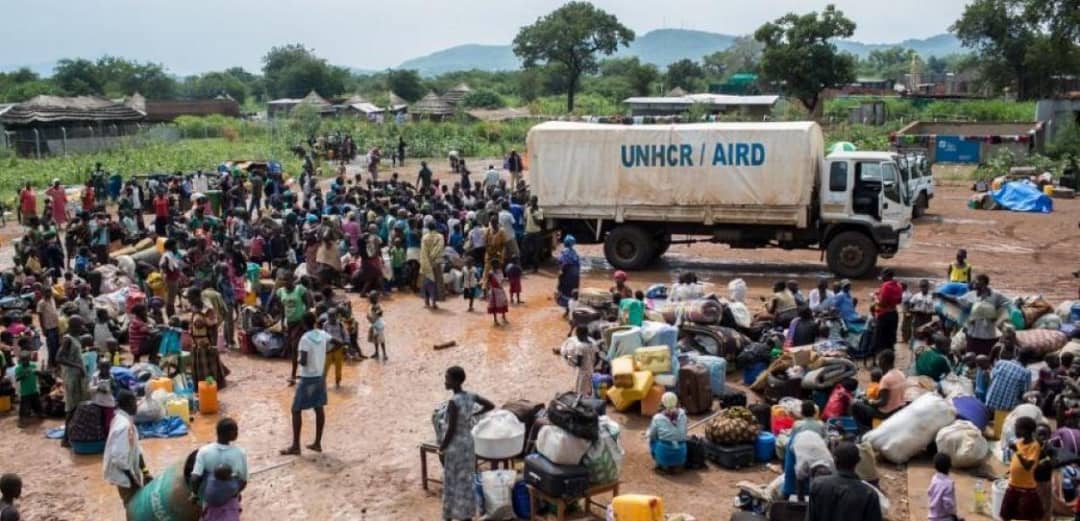Uganda and UNHCR Sound Alarm on Refugee Funding Crisis as Influx Surges

Uganda and the United Nations High Commissioner for Refugees (UNHCR) have issued an urgent appeal for international support as the country faces a steep rise in refugee arrivals amid a deepening funding crisis.
In a joint statement released on May 30, the Government and UNHCR warned that unless donor support is revived, critical services for refugees will continue to deteriorate.
The announcement followed a high-level strategic meeting held on May 23 to address the worsening financial outlook for refugee operations in Uganda and the wider region.
Uganda, already home to more than 1.9 million refugees, has received over 110,000 new arrivals since the start of 2025—primarily from conflict-ridden neighbours like South Sudan, the Democratic Republic of Congo, and Sudan.
Yet UNHCR’s Uganda operations have only received 17% of the funding needed for the year.
“These measures reflect a broader global response to severe budget limitations. We deeply regret the impact on affected personnel and on the refugees we serve,” the joint communiqué stated, pointing to recent staff cuts and service reductions that have begun to affect both operational capacity and humanitarian outcomes.
Eng. Hilary Onek, Uganda’s Minister for Relief, Disaster Preparedness and Refugees, expressed deep concern over the sustainability of the country’s open-door refugee policy in the face of collapsing donor support.
“We jointly call on the international community to urgently step up support,” he said. “Sustained international solidarity is essential to uphold Uganda’s exemplary refugee policy and ensure continued protection for those in need.”
UNHCR’s Country Representative in Uganda, Matthew Crentsil, described the current strain as one of the most critical financial shortfalls in recent years, warning that essential services such as health care, education, water, and food distribution are already being scaled back.
“UNHCR and the Government continue to work hand in hand to ensure alignment with national priorities and the continued delivery of essential services to refugees,” Crentsil said, adding that the agency remains committed to transparency and partnership even under difficult circumstances.
Uganda’s refugee model has long been hailed as one of the most progressive in the world. Refugees are granted freedom of movement, access to land, and the right to work—policies that have earned international praise and positioned Uganda as a humanitarian leader in the region.
But the current crisis risks eroding that reputation if donor countries and international partners do not intervene swiftly.
The joint appeal comes amid global competition for aid in multiple humanitarian hotspots, including Gaza, Ukraine, and the Horn of Africa, which has spread resources thin and placed traditional donor countries under pressure to make hard choices.
Both UNHCR and the Ugandan government acknowledged the impact of recent service cuts and personnel reductions, noting the human toll on both aid workers and refugee communities. However, they also underscored that the situation remains reversible—if the world acts quickly.
Uganda's refugee settlements, particularly Bidi Bidi, Nakivale, and Palabek, have reported rising demands on overstretched health centres, classroom shortages, and water access problems.
Many aid agencies operating in the settlements have been forced to scale back operations or delay expansion plans, worsening the burden on host communities already grappling with inflation and climate-related shocks.
“The solidarity Uganda has extended to the displaced should not be taken for granted,” said a senior official from the Office of the Prime Minister who attended the May 23 meeting. “We are carrying an international responsibility. It must be matched with international support.”
As the humanitarian community braces for further funding cuts across multiple refugee contexts, Uganda’s appeal serves as a stark reminder that political will alone cannot sustain compassion without resources.
The Government and UNHCR have called on traditional donors, development partners, and emerging economies to recommit to the refugee cause—not just in rhetoric, but in tangible, timely contributions that can restore hope and stability to the millions who have sought refuge in Uganda.
Whether the world listens now may determine not only the future of Uganda’s refugees, but the durability of one of the last remaining models of humane asylum policy in a time of growing global indifference.



0 Comments